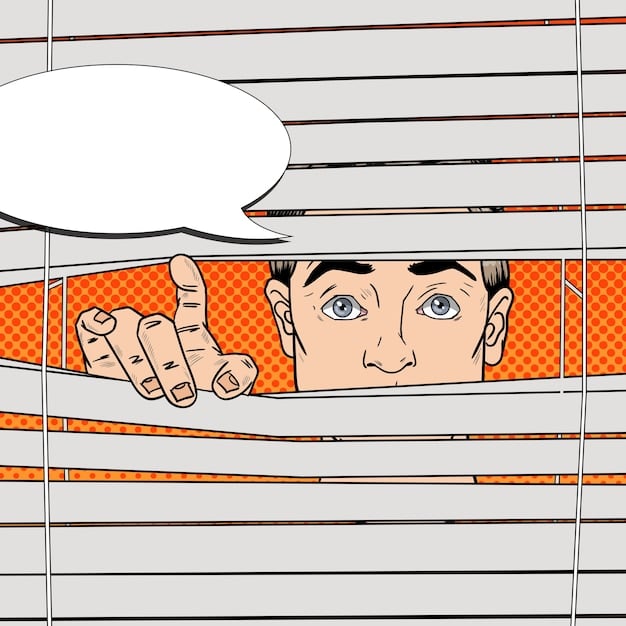Manga Release Controversy: Analyzing Fan Reactions to Recent Changes

Manga release controversy sparks debates among fans due to alterations in release schedules, content, or formats, leading to diverse reactions and discussions within online communities.
Manga releases are a highly anticipated event for fans worldwide, but recent changes have stirred up significant controversy. Let’s delve into the manga release controversy, examining fan reactions to these changes and the underlying reasons for the discontent.
Understanding Manga Release Changes
Manga releases are not always smooth sailing. Various factors, from production delays to editorial decisions, can lead to changes in how manga is released. These changes can significantly impact the reader experience.
Types of Release Changes
Manga releases can be altered in several ways. Understanding the types of changes sets the stage for examining fan reactions.
Reasons Behind the Changes
There are several reasons behind altered manga releases. These can include production issues, creative decisions, and market strategy.
- Production Delays: Sometimes, unforeseen issues in production can cause slowdowns.
- Editorial Decisions: Publishers may make changes based on market performance.
- Artistic Changes: Artists evolve, and this can affect style.
- Licensing Issues: Rights can be complex and affect availability.

Changes in manga releases arise from different sources. Fans often react strongly to deviations from their expected experience.
Common Fan Reactions to Release Changes
When manga releases change, fans respond in a variety of ways. These reactions reflect their personal investment in the series.
Positive Responses
Not all reactions are negative. Some fans can appreciate changes if they enhance the story or art. For example, improvements in translation might be praised.
Negative Responses
Many fans express disappointment. This can range from mild annoyance to severe criticism depending on the alteration.
- Disappointment: Mild frustration over delays or format changes.
- Criticism: Negative feedback about artistic differences.
- Boycotts: Refusal to support a series due to dissatisfaction.
- Outrage: Extreme anger expressed through social media.
Fan reactions to manga release changes vary widely. These responses often reflect deep connections to the series.
Case Studies: Notable Manga Release Controversies
Specific instances underscore the intensity of fan reactions. Examining individual manga titles can give a sense of the extent of fan involvement.
Series A: Art Style Shift
In a popular series, an unexpected shift in art style upset many fans. The altered style was perceived as less appealing than the original.
Series B: Release Schedule Delays
Delays in the release schedule for another series led to frustration among fans. Readers felt that the delays showed disrespect for their time and money.

Controversies often result in heightened emotions. When releases do not meet expectations, fans can become very vocal.
The Impact of Social Media on Fan Reactions
Social media significantly amplifies fan reactions. Discussion platforms provide forums for fans to voice their opinions and unify in their criticisms or support.
Forums and Communities
Online forums and communities become echo chambers. Fans gather, discuss, and amplify their feelings about the series.
Social Media Platforms
Platforms like Twitter and Reddit can become battlegrounds. Immediate reactions can spread rapidly, influencing community sentiment.
- Amplification: Social media allows fans to voice opinions quickly.
- Organization: Fans can unite to express collective opinions.
- Direct Feedback: Social media provides a space for direct feedback.
- Trendsetting: Viral posts can influence public opinion.
Social media molds opinions. This has a direct impact on how manga releases are received.
How Publishers Respond to Fan Reactions
Publishers can react in different ways when faced with critical feedback. How these responses are handled often plays a crucial role in shaping the controversy.
Ignoring the Feedback
Some publishers might choose to ignore fan feedback. This can exacerbate negative sentiments if fans feel ignored.
Engagement and Changes
Other publishers may proactively engage with fans. This shows that their views are being heard.
- Acknowledging Concerns: Companies can diffuse tension by admitting errors.
- Making Alterations: Publishers occasionally revert to older releases.
- Transparency: Open communication builds trust.
- Compromise: This can reassure fans.
Responsive publishers can turn negative situations around. Addressing fan feedback can protect the series.
Future Trends in Manga Release Strategies
Future manga releases are likely to be more tailored to fans. Publishers are adapting to ensure greater satisfaction. This includes innovations.
Digital Distribution
Digital platforms increasingly cater to readers. With new services, accessing manga will become even easier.
Subscription Models
Subscription services offer value to readers. This can help mitigate disappointment over release schedule changes.
Publishers will continue to experiment with new methods to engage and satisfy readers. Staying ahead of fan preferences ensures that releases are well-received.
| Key Point | Brief Description |
|---|---|
| 🗓️ Release Delays | Frustration rises when release schedules are inconsistent. |
| 🎨 Artistic Changes | New art styles can greatly impact appreciation of the series. |
| 🗣️ Social Media | Amplifies responses, aiding in community action. |
| 🤝 Publisher Response | Acknowledging can help ease fan discontent. |
Frequently Asked Questions
Changes occur due to a range of reasons, including production delays, artistic changes, and licensing issues. They are not always intentional changes; unexpected issues can occur too.
Fan reactions vary widely from disappointment and criticism to positive acceptance. Social media often amplifies these reactions, allowing collective opinions to take shape quickly.
Social media allows for rapid and widespread expression of opinions. It can amplify both positive and negative feedback, influencing overall sentiment surrounding the series.
Some publishers ignore feedback, while others actively engage with fans. Acknowledging concerns and making alterations can help diffuse tension and improve fan satisfaction.
Future trends include expanded digital distribution and subscription models, which offer increased convenience and value to readers. Publishers are adapting to meet fans’ needs.
Conclusion
Manga release controversies highlight the passionate connection fans have with their favorite series. Understanding the causes of release changes, fan reactions, and publisher responses can lead to better communication and stronger fan engagement in the future.





